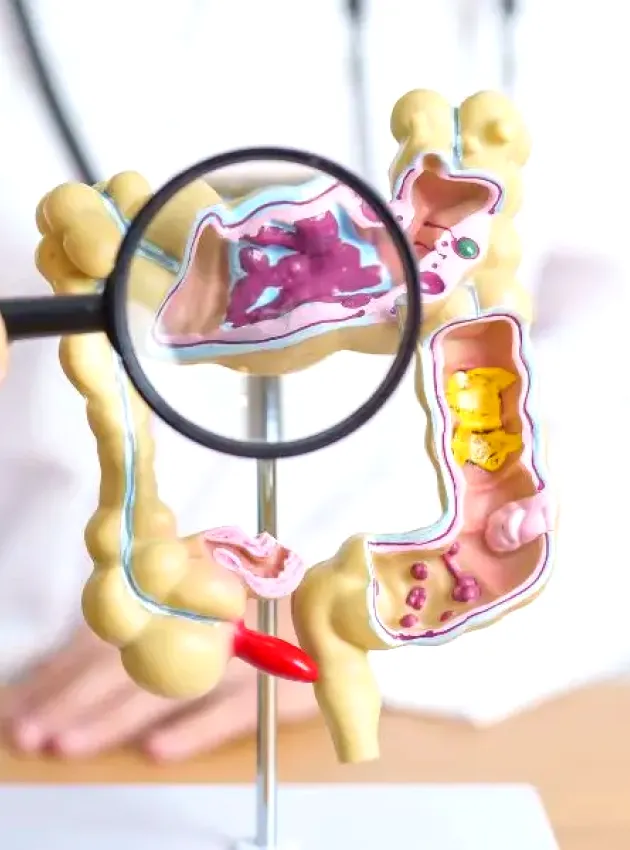
1. Gut Microbiota: An Ally for Your Health
The gut microbiota consists of the living microorganisms that inhabit our digestive system, particularly the colon. Increasing scientific research emphasizes the importance of these tiny organisms for our overall well-being. An imbalanced microbiota is often linked to various health issues such as inflammatory bowel diseases, irritable bowel syndrome, asthma, allergies, diabetes, and even weight management (1).
2. Probiotics: A Boost for Your Gut Flora
What Are Probiotics?
Research on probiotics appears promising for their ability to maintain a healthy balance between beneficial and harmful bacteria in our gut. It's suggested that adding probiotics to our diet could help alleviate certain digestive symptoms, such as antibiotic-associated diarrhea, bloating from chronic constipation, and even improve symptoms associated with some inflammatory bowel diseases (2).
Where to Find Probiotics?
You can find probiotics in fermented foods like yogurt, kefir, miso, kimchi, kombucha, or tempeh. However, it's crucial to note that not all fermented foods necessarily contain probiotics. Some products like sourdough bread or cooked or pasteurized fermented vegetables do not contain them.
How to Choose Probiotic Supplements?
If you're interested in probiotic supplementation, various forms are available: capsules, chewable tablets, drink concentrates, and powders. Moreover, it's crucial to understand that different types of probiotics contain different species of bacteria, which may be more or less effective depending on why you are considering taking probiotics. For choosing the most appropriate probiotic strain for your specific needs, it's advisable to consult with a registered dietitian or nutritionist.
3. Prebiotics: Food for Your Good Bacteria
Unlike probiotics, prebiotics are non-digestible substances that serve as "fuel" for good gut bacteria. They are found in a wide variety of foods, including garlic, onion, legumes like lentils, chickpeas, or beans, asparagus, artichokes, and whole grains like barley and rye (3).
4. How to Foster a Healthy Microbiota Daily
To promote a healthy gut microbiota, here are some dietary strategies to integrate into your daily routine:
- Fruits and Vegetables: Incorporate green vegetables like spinach, broccoli, or lettuce into at least two of your meals per day. Fruits like berries, oranges, and apples are also beneficial, particularly for their fiber content.
- Diversify Proteins: Instead of sticking solely to animal proteins, incorporate legumes like lentils, chickpeas, and black beans. You can add them to salads, stews, or casseroles. These protein sources play a role in reducing harmful bacteria in your digestive tract.
- Fermented Foods: Regularly consume natural yogurt, kefir, or kimchi to promote the growth of beneficial gut bacteria.
- Whole Grains: Opt for fiber-rich whole grains like oats, quinoa, and brown rice to facilitate better digestion.
- Hydration: Don't forget to drink enough water to assist with digestion and create a healthy environment for your microbiota.
5. Explore More on Gut Health
For personalized guidance in maintaining or improving your gut health, don't hesitate to schedule an appointment with a nutritionist-dietitian. They can help you select foods and supplements that best suit your condition and needs. The benefits of probiotics are multifaceted and can be particularly useful following antibiotic treatment, which may affect your gut flora.
References
- Clemente JC, Ursell LK, Parfrey LW, Knight R. The impact of the gut microbiota on human health: an integrative view. Cell. 2012;148(6):1258-1270.
- Jakubczyk D, Leszczyńska K, Górska S. The Effectiveness of Probiotics in the Treatment of Inflammatory Bowel Disease (IBD)-A Critical Review. Nutrients. 2020 Jul 2;12(7):1973. doi: 10.3390/nu12071973. PMID: 32630805; PMCID: PMC7400428.
- Roberfroid M, Gibson GR, Hoyles L, et al. Prebiotic effects: metabolic and health benefits. Br J Nutr. 2010;104(S2):S1-S63.





